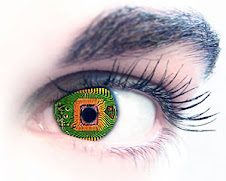
Photo Credit: Mixed Reality Lab
CYBERBULLYING AND CYBERPEDOPHILIA -- explained by social analysts as "sexual attraction to prepubescent children" is no doubt at an all-time high today , burgeoning through a societal sex crime crisis experienced by the United States in the early and mid-1990s, and spreading through Europe, particularly Britain, Belgium, the Netherlands, France, and Germany, countries which found themselves in the "same predicament". From offline sexual abuse moral panics, these developing phenomena have crawled through online bullying and pedophilia, and have become the scourge of concern by the parental community and the society as a whole.
As cyberbullies are touted to be "emboldened when using electronic means to carry out their antagonistic agenda because it takes less energy and courage to express hurtful comments using a keypad or a keyboard than with one’s voice", the astounding statistics continue in steadily increasing figures. A 2005 US survey reported 73% of the respondents stated that they knew the bully, 26% experienced that the offender was a stranger, 10% revealed that their picture and/or video of them via a cellular phone camera, "consequently making them feel uncomfortable, embarrassed, or threatened."
Check out the statistical reports:
"The internet is the new playground or schoolyard where pedophiles go to meet children. Cyber pedophiles almost always have a history of sexual conduct with children and now use chat rooms to contact children directly. Cyber pedophiles usually have interest in child pornography or sexual urges and fantasies with children. The legal system has seen an alarming increase in the number of pedophiles over the past several years. Statistics show that 1 in 5 children who use computer chat rooms have been approached by a pedophile and 1 in 7 kids who use the internet have been solicited for sex online. Law enforcement officials estimate as many as 50,000 sexual predators are online at any given moment."
Cyberpedophilia, meantime, targets the much-younger set of 6 to 10-year-old prepubescent children, with surveys suggesting that as many as 3 in 10 children have been subjected to bullying while online.
Enter Mixed Reality Lab , a project of the National University of Singapore and the Keiyo Media Design of the Keiyo University of Japan, has created the interactive "social robots" called Petimo: designed to guard children against cyberbullies and other online crimes, and borne from the reality that 18 percent of said prepubescent kids in the US use social networking sites, "thus there is a strict need of someone who vigils upon these minors so that they aren’t victimized by the cyber world, this is what the Petimos does so efficiently."
National University of Singapore's Adrian David Cheok , inventor of Petimo, explains that he wanted to use new media to help develop more natural human forms of communication, and that "Petimo is one step in this direction."
How does it work?
"Children will only be able to accept new online "friends" if their Petimos are brought into physical contact first, to guard against cyberbullies and paedophiles masquerading as children. The devices work in conjunction with an online social network called Petimo-World in which they are represented by avatars. By squeezing their physical Petimos, or pressing buttons on them, children can send messages or "gifts" to their online friends.
Parents are notified each time a friend request is made and can block approaches that concern them, so children only see and interact online with the avatars of approved friends.
Meantime, UK group E-Victims, advocating safety for both children and adults on online sex crimes, contend that the system may be quite limited with the restricted content of Petimo World as online children are bound to be bored .
"Children young enough to be content with a walled garden approach and its limitations will probably be too young to be seriously interested
in the chat element."
To this, UK
police officials last March called on social networking sites to place a standard "panic button" designed by the Child Exploitation and Online Protection Centre on all pages, to help ensure safety for children against online sex crimes, and against cyberbullying and cyberpedophilia.
Meantime, advocates against online sex crimes on children also lament that the responsibility is not solely on social networking sites, as parents , too, have strong roles to play. Online practices such as anonymity and caution in disclosing information are very important, as well as installing certain filtering software which are able to block off pornographic contents if they were to receive pornographic materials in their inboxes, or when they surf the Internet.
"Companies or schools can also install software such as the BioObservation System using computer image analysis technology that can analyse computer images to identify pornographic or pedophile images on suspect computers and to alert the relevant authority when such offending images are received."
Mixed Reality Lab's Petrimo hits the US market late this year, and may also be due for distribution for the international market.

"Future of Communication"- Mixed Reality Lab, Adrian David Cheok












































No comments:
Post a Comment